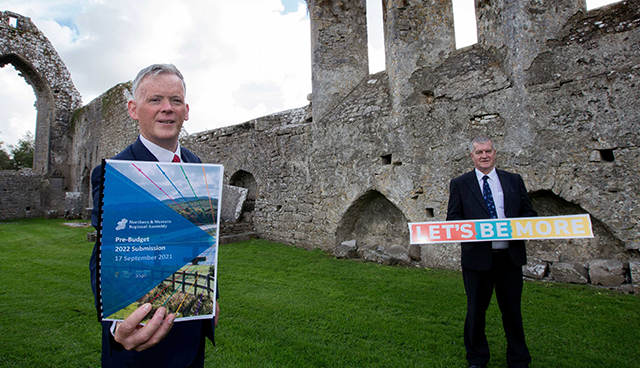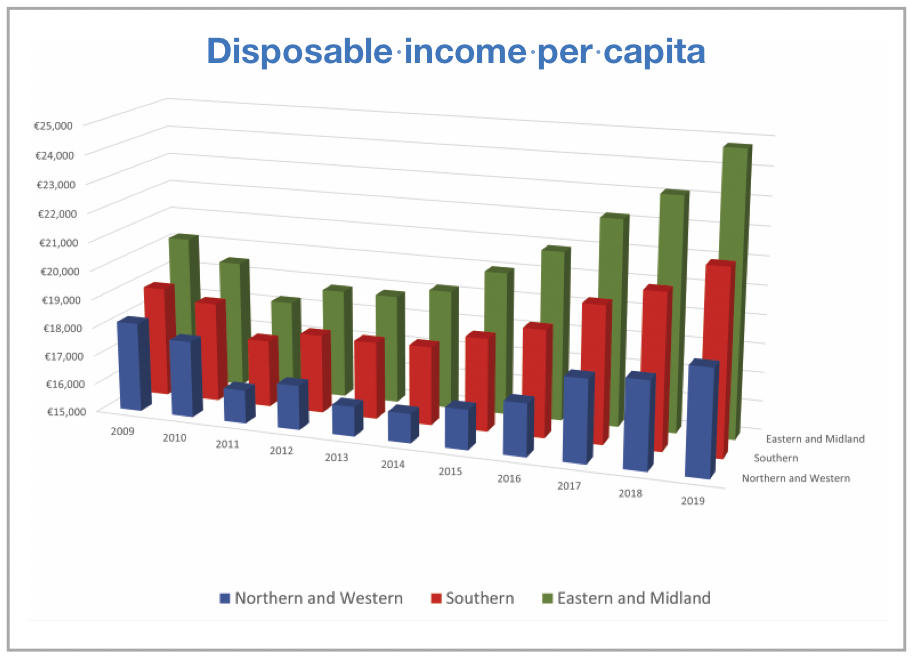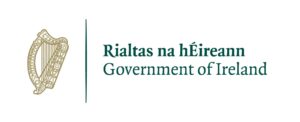Northern and Western Regional Assembly delivers on key objectives for 2021 despite global challenges

David Minton, Director of the Northern and Western Regional Assembly reflects on regional development in Ireland, the impact of Covid-19 pandemic, and the implementation of the new Regional Spatial and Economic Strategy.
The regional assemblies have become an increasingly prominent player on the public policy landscape. The Northern and Western Regional Assembly (NWRA) has evolved as a key advocate and leader for its region. Covid was a perfect example of this.
The team did an amazing job during Covid. Like many others, we took the opportunity to stand up and support our communities. Within the Assembly there is a really high level of performance, and high trust. The elected members were also quick to hold us to account. That was quite a proud moment, when they understood the value of the Assembly in a crisis and challenged us to respond.
Most significantly was the work done to support the HSE invest over €100 million in PPE for health care and health service providers across the region, through European Regional Development Funds. The PPE helped to protect frontline staff from the Covid-19 virus in hospitals, acute and primary care settings, testing centres, assessment hubs and residential care settings.
For me, this is just another example of effective regional development. Since the launch of the NPF I reckon we’ve gone from being anonymous as a body from a central and local government perspective, to now one where we are recognised by the right people for doing the right things, and we’re getting a fair cut of the coin for doing so.
That’s not necessarily always or readily quantifiable, but from my point of view, the key is that they are credible and push hard. We try to influence the best outcome for our region, and our communities. Why? As a team, we live in the region and we are passionate about its future.
Ireland has one of the highest levels of regional inequality amongst EU member states. Despite the country’s economic growth, a very uneven pattern of success can be identified where some areas of the country are benefiting significantly less than our capital region. This presents a less positive micro picture of economic success.
I’m an optimist when it comes to our future, but the current evidence relating to economic performance is stark. The European Commission’s decision to downgrade the region’s status from a ‘More Developed Region’ to a ‘Transition Region’, while the north and west was the only region in Ireland to be classified as a ‘Moderate Innovator’. In addition, the European Parliament has also categorised the north and west as a ‘Lagging Region’, which is a region with low economic growth which is divergent from the performance of its own national economy. This points to underlying structural issues.
I believe Ireland needs all its regions performing and that’s why we launched an inventive campaign titled Let’s Be More and we are backing that up with a €210 million programme of investment through the co-financed European Regional Development Funds between 2021-2027.
This programme of investment is needs-led through the new Regional Spatial and Economic Strategy. Denis Kelly, our Senior Planner and Assistant Director and our Planning and Economic Development team have designed a strategy that prioritises investment and adopts a framework towards sustainable and integrated development. The team’s approach has enabled us to become more involved at national level (Housing for All, Climate Action Plan, Five Cities Demand Study, etc) but also cooperate with our constituent stakeholders in the region, namely our local authorities.
The region needs additional investment. Our EU Funds team, led by Assistant Director Gerry Doyle over the next six years is going to focus on key strategic challenges. We know the world is changing, but we know Ireland is changing more than any other. That is why, more than ever we need smarter, greener, more specialised and connected communities, be that within our rural areas, villages, towns, or cities. To achieve that we need to invest in our people, through schemes stimulating our human capital.
Our region needs a radical new approach. We need a new model for regional innovation and entrepreneurial training. We need to accelerate the translation of cutting-edge research into commercial applications at a regional level. Our new Technological University is at an embryonic stage and needs a wider research footprint with more scope to engage directly with local and regional business, industry and enterprise stakeholders. Most exciting is the opportunity for innovative regional partnership’s to improve our entrepreneurial ecosystems, highlighted to Minister Simon Harris in our submission to the new Research and Innovation Strategy.

“Our region needs a radical new approach. We need a new model for regional innovation and entrepreneurial training. We need to accelerate the translation of cutting-edge research into commercial applications at a regional level.”
The investment of over €210 million in the ERDF co-financed programme will help address our structural weaknesses, but also help us create healthier and more vibrant town’s. However, the biggest challenges lie ahead.
Let’s Be More is advocating for a sustained policy focus on the border and west to ensure long-term sustainable progress and economic inclusion. We need to do something immediate and different. The northern and western region’s economy was valued at €22.1 billion in 2019, equating to €24,926 per head of population. This is in stark contrast with the state average of €66,716. The region is acutely exposed and we need to make sure that this is not exacerbated by forthcoming climate and biodiversity challenges.
That’s why in 2020, we recruited an economist in John Daly. John, as part of the Planning and Development and Economic Development team has managed to bring a new perspective to both our policy work and project implementation. His capacity to both access and visualise data in a highly innovative manner has allowed us to advocate in a much stronger way with emerging public policy. Results of this are quantifiable, but we are also seeing new partnerships emerge with the likes of the OECD and our new Atlantic Technological University, advocated for strongly in the Regional Spatial and Economic Strategy.
Recently I spoke at a conference in Sligo where I quoted George Orwell’s dystopian novel 1984. The first line of that book refers to the 13th hour indicating a new understanding or a new way of thinking. I believe we are in that time now, and only new systems and thinking will prepare us.
E: info@nwra.ie
W: www.nwra.ie








